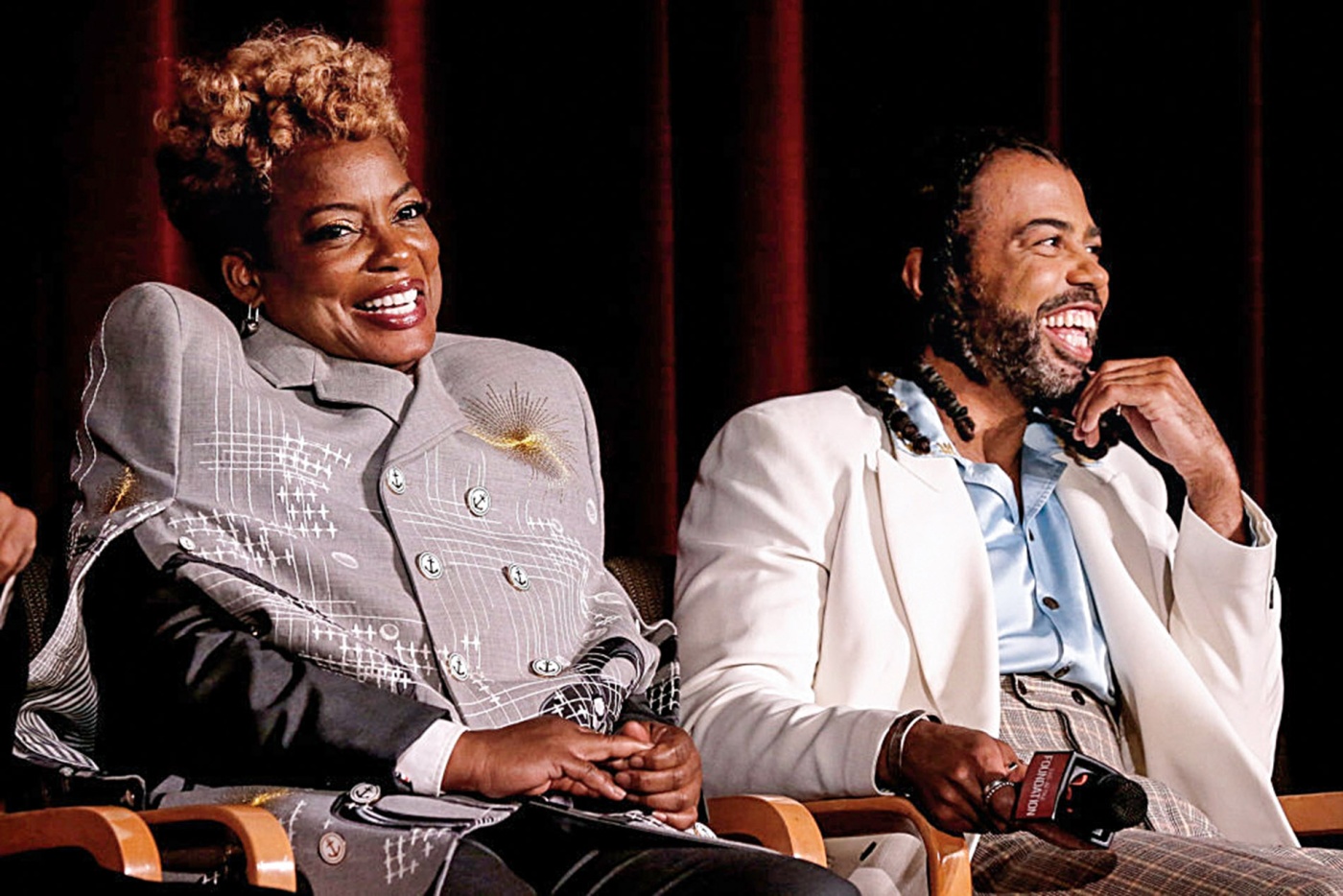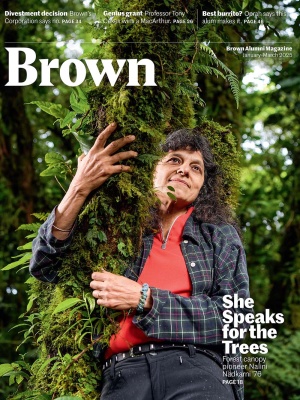Radical Filmcraft
An Oscar-nominated new film from Professor RaMell Ross
The second movie from visual arts professor RaMell Ross was named best of 2024 by the New Yorker’s Richard Brody. Nickel Boys, an adaptation of Coleson Whitehead’s Pulitzer-winning novel, stars Aunjanue Ellis ’93 and Daveed Diggs ’04 (left) in the tale of a bookish, idealistic young high schooler in Jim Crow–era Florida who is mistakenly sent to reform school (the fictional Nickel Academy, based on Florida’s notorious Dozier School for Boys, where authorities are still uncovering unmarked graves). The Oscar-nominated film’s cinematographer is Jomo Fray ’10.

Ross builds on the intimate, impressionistic style he first honed as a photographer—a style so striking it earned his debut film, Hale County This Morning, This Evening, an Oscar nod (see “A Symphony of Moments,” Nov.-Dec. 2018). Here making his first foray into fiction, Ross swings big by alternating much of the camera work between the points of view of two young protagonists. Some critics called it distracting; others lauded it as immersive and devastating. “Some films shine brighter than others,” says Robert Daniels for RogerEbert.com, and this one “is polished to a remarkable luster.... This isn’t a film that holds your hand. Ross... teaches the viewer how to see and feel the world through Black eyes. If the lesson doesn’t take, the blame does not lie with the film.
On November 4, Ross and Ellis spoke about the film at Brown’s Granoff Center at an event sponsored by the Center for the Study of Race and Ethnicity in America. The panel moderator, sociology professor Prudence Carter, said Nickel Boys shows “black joy, black love, and black pain and the hatred of black people, all at the same time.”
“I’m interested in creating media that’s as complex as the result of the violence,” Ross said—“to me that’s not “Ellwood [one of the two main characters] getting beat.” That, he said, would be creating “some sort of lazy empathy.” Ross spoke about shooting from the point of view of the characters. “The camera fundamentally ‘others,’” he said, so he was trying to find a style of filming that would mitigate this: “I’ve always wanted to make the camera an organ… aligned with consciousness.”
This was particularly important for him in dealing with the topic of violence against Black people. “I give my students this essay, ‘A Holiday from History,’” he says, about 9/11. On that day, “bodies were falling from the sky,” he said, but “how many images have you seen” of that? Meanwhile, we see graphic pictures of violence happening to Black and Brown bodies across the globe. The message, he said: “It happens to them, not to us.”
Nickel Boys is a powerful book, Ross said, but the film did not aim to recreate it. He explained that he wanted to “respectfully get as far away from the book as possible” and “try to employ all the power that cinema has.”
Ellis spoke about her character’s connection to her own childhood experience. “I was predominantly raised by my grandmother,” she said, telling a story of her loving yet fairly taciturn grandmother pushing a car out of the mud in a “tornadoic” storm, so Ellis could recite a poem at church. Despite the sad subject matter of Nickel Boys, Ellis said, “I carry a lot of joy with me in what I do,” adding, “These children were brutalized and people don’t know about it. And I get to be a part of that correction of that absence of truth.” —Event coverage by Louise Sloan ’88




